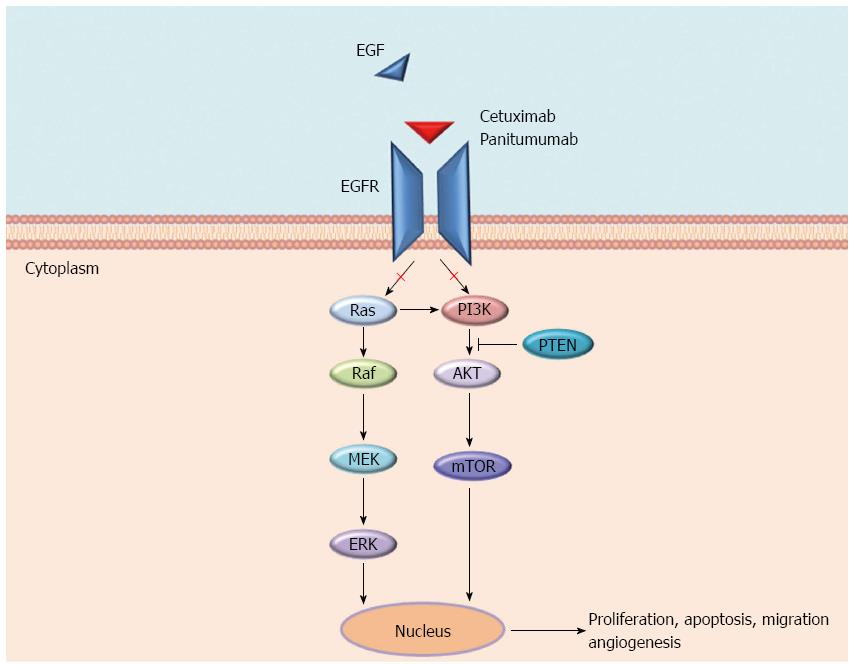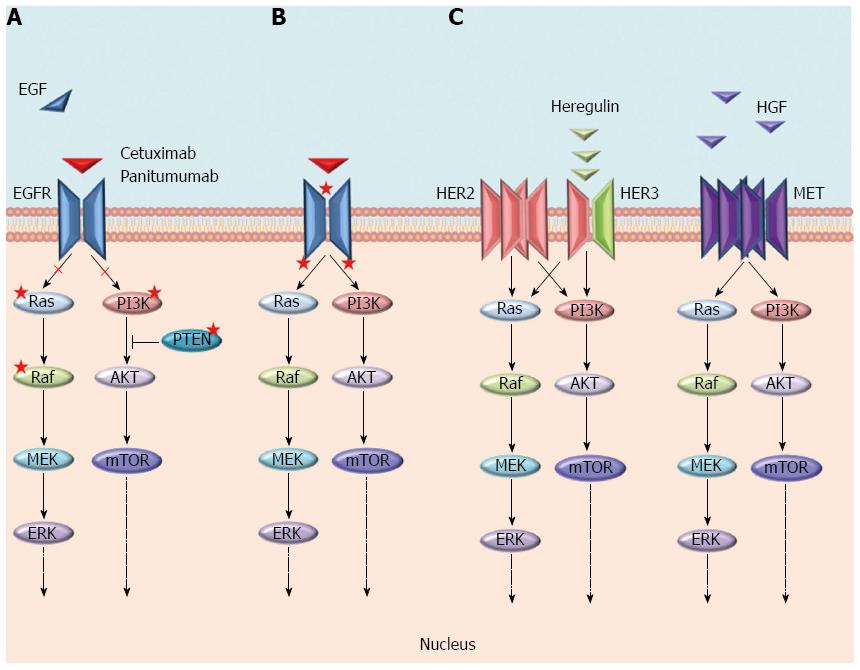Copyright
©The Author(s) 2016.
World J Gastroenterol. Jul 28, 2016; 22(28): 6345-6361
Published online Jul 28, 2016. doi: 10.3748/wjg.v22.i28.6345
Published online Jul 28, 2016. doi: 10.3748/wjg.v22.i28.6345
Figure 1 Epidermal growth factor receptor and its downstream signaling pathway.
Binding of ligands such as epidermal growth factor (EGF) to Epidermal growth factor receptor (EGFR) activates downstream Ras/ERK and PI3K/Akt pathways and regulates various physiological processes. The anti-EGFR monoclonal antibodies (mAbs) cetuximab and panitumumab block the activation of these pathways.
Figure 2 Mechanisms of resistance to anti-epidermal growth factor receptor monoclonal antibodies in metastatic colorectal cancer.
A: Activating mutations of EGFR effectors, such as RAS, BRAF and PI3KCA, or PTEN loss of function, cause persistent activation of downstream signaling regardless of EGFR inhibition; B: Mutations in extracellular domain of EGFR inhibit cetuximab binding, but not panitumumab, mediating acquired resistance. Mutations in kinase domain of EGFR led pathways activation in the context of acquired resistance; C: Amplification/activation of alternative receptors such as HER2 or MET, can bypass the EGFR blockade and mediate pathways activation. EGFR: Epidermal growth factor receptor.
- Citation: Sforza V, Martinelli E, Ciardiello F, Gambardella V, Napolitano S, Martini G, della Corte C, Cardone C, Ferrara ML, Reginelli A, Liguori G, Belli G, Troiani T. Mechanisms of resistance to anti-epidermal growth factor receptor inhibitors in metastatic colorectal cancer. World J Gastroenterol 2016; 22(28): 6345-6361
- URL: https://www.wjgnet.com/1007-9327/full/v22/i28/6345.htm
- DOI: https://dx.doi.org/10.3748/wjg.v22.i28.6345










